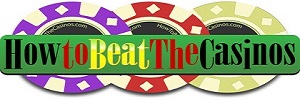The Psychology of Gambling
Gambling is more than a game. It’s a deeply psychological experience—tied to emotion, perception, and brain chemistry. Whether you’re spinning the reels on a slot machine, placing chips on the roulette wheel, or sweating a river card in poker, the rush you feel isn’t just luck—it’s biology and psychology working together.
To gamble well—and more importantly, responsibly—it helps to understand what’s really going on in your head when you play. In 2025, we know more than ever about how the human brain responds to risk, reward, and uncertainty. And with that knowledge comes power: the power to enjoy gambling as entertainment without letting it take control.
In this article, we’ll explore the psychological mechanisms behind gambling, including the thrills, the traps, and the tools you can use to stay in control.
The Role of Dopamine
Let’s start with the chemical at the heart of all gambling highs: dopamine.
Dopamine is the brain’s “feel good” neurotransmitter. It’s released when we experience something pleasurable—like food, sex, or achievement. And gambling? It’s a dopamine goldmine.
But here’s the twist: dopamine isn’t just released when we win. It’s also released in anticipation of a win. That’s why even near-misses—like two cherries and a third that almost hits—still give you a rush. The brain perceives potential reward and fires off dopamine, reinforcing the behavior.
This makes gambling uniquely addictive. You don’t need to win to feel good. You just need to almost win.
Variable Rewards: The Slot Machine Effect
Slot machines are designed using something called variable ratio reinforcement—a psychological principle where rewards are given out unpredictably. This is the same mechanic used in video games, social media likes, and yes, slot reels.
You never know when the next reward is coming. And because of that unpredictability, you keep playing. Studies have shown that variable rewards trigger more persistent behavior than consistent rewards.
This is why slot players can sit for hours, chasing a bonus round or progressive jackpot. Their brains are constantly expecting a reward—because sometimes, it does come. But that’s the hook: the longer you play, the more money you spend in pursuit of a thrill your brain is convinced is “just one more spin” away.
The Illusion of Control
Another powerful psychological factor in gambling is the illusion of control—the belief that your actions can influence a random outcome.
Think about it: players blow on dice, pull a slot handle instead of pressing a button, choose their own lottery numbers, or study roulette patterns. None of these actions affect the outcome, but they create a sense of agency. And that illusion can lead players to believe they have more influence than they really do.
Why is this dangerous? Because people who feel in control are more likely to keep betting—even after losses. They think their “system” is just about to kick in.
Loss Aversion and Chasing
Psychologically, losing hurts more than winning feels good. It’s a well-documented phenomenon called loss aversion. For most people, losing $100 is twice as painful as the joy of winning $100.
This asymmetry drives a lot of poor decision-making in gambling. After a loss, players often chase it—not because they’re greedy, but because their brains are trying to undo the emotional damage. They want to erase the bad feeling by replacing it with a win.
Unfortunately, chasing usually results in further losses, which creates more stress, anxiety, and risk-taking. The downward spiral begins.
The “Hot Hand” Fallacy
Ever felt like you’re “on a roll”? That after a win or two, you’re more likely to win again? That’s the hot hand fallacy—the belief that past success predicts future results, even in random games.
In truth, most gambling games reset with every round. The odds don’t change just because you’ve won (or lost) a few times. But the brain craves patterns. It wants to believe it can predict what’s coming next—even when the math says otherwise.
FOMO and Social Influence
In the digital age, gambling isn’t just about money—it’s about status, visibility, and community. Watching gambling influencers hit big wins can trigger FOMO (fear of missing out), making viewers feel like they need to jump in too.
Casinos play into this psychology with bells, sirens, and public win announcements. Every jackpot you hear is a reminder: someone’s winning—why not you?
This social reinforcement makes it harder to walk away, especially when others around you seem to be doing well.
How to Stay in Control
Now that you understand the psychological mechanisms at work, how can you protect yourself while still enjoying the game?
1. Set Clear Limits
Before you play, decide how much time and money you’re willing to spend. Use apps or built-in casino tools to help you stay accountable.
2. Take Breaks
Gambling for hours at a time can dull your judgment. Step away, clear your head, and return with a fresh mindset.
3. Watch Your Emotions
Are you playing to win—or playing to feel better? Emotional gambling is usually a sign it’s time to stop.
4. Treat Wins and Losses the Same
Don’t let a win convince you you’re invincible—or a loss convince you you’re due. Stay steady, regardless of results.
5. Use Self-Exclusion Tools
If you find it hard to stop, most casinos (online and in-person) offer tools to block or limit your access. There’s no shame in using them.
6. Talk About It
Whether with friends or a professional, talking about your gambling habits helps bring awareness—and prevents isolation.
Final Thoughts
Gambling is thrilling, fun, and packed with possibility. But behind every spin, deal, and wager is a powerful cocktail of psychological influences. Understanding how your brain responds to risk and reward can help you stay mindful—and in control.
Remember, the house edge isn’t just about math. It’s about mindset. And the more you understand yours, the better chance you have of walking away a winner—not just financially, but emotionally and mentally, too.
Play for the thrill. Know the science. And always, always gamble responsibly.

